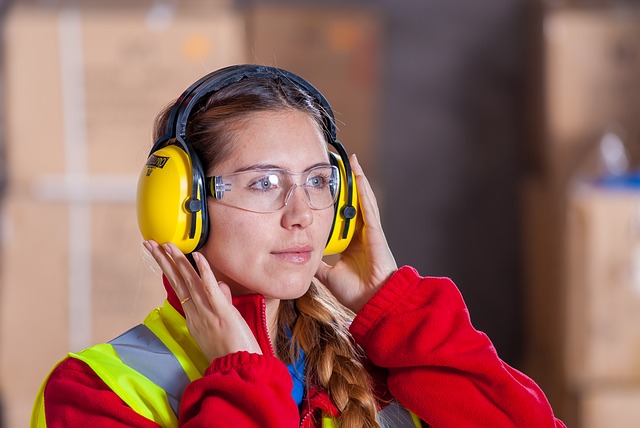Personal Protective Equipment – Hearing Protection
Hearing Protection
Explain dangers
Many workers are overexposed to noise. In time, overexposure can damage your hearing.
Hearing loss prevents you from hearing other hazards on the job. It also causes problems in your personal life.
• It interferes with how you hear normal speech.
• It prevents you from socializing.
• It can cause high blood pressure.
• It is permanent.
Identify controls
Hearing loss is preventable. The best prevention is hearing protection.
Noise is any unwanted sound. There are two types—continuous noise (e.g., from a generator) and impulse noise (e.g., from a nail gun).
Noise is measured in decibels (dBA). For example, a quick-cut saw produces 115 dBA, a jackhammer produces 110 dBA, and a drill produces 100 dBA.
The noise level doubles every time it increases by 3 dBA. So when the level goes from 80 dBA to 83 dBA, the noise is twice as loud.
In the same way, the noise level drops 6 dBA when you double your distance away from it. This will make the noise level four times quieter.
The Noise regulation (O. Reg. 381) sets a limit of 85 dBA of noise exposure over an 8-hour work shift. This is the loudness of a room full of people.
The Noise regulation also require employers to control noise at the source or along the path before relying on hearing protection devices to
control noise at the worker.
If hearing protectors such as earplugs and earmuffs are the only option, employers must train workers how to use them.
Demonstrate
Review company policy and procedures on hearing protection.
Show two types of hearing protectors:
• Earplugs
• Earmuffs.
Show how to insert earplugs:
1. Reach one hand around back of head.
2. Pull ear upwards to straighten S-shaped ear canal.
3. Insert plug with other hand according to the manufacturer’s instructions.
For more information, visit the IHSA website.

